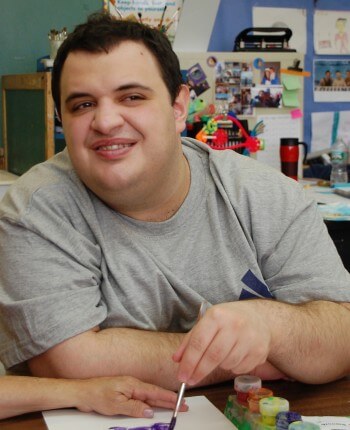Once again, it’s time for shopping, gift-giving, donating, and accepting gifts. With as much joy as this time of the year brings, stress still finds a way to sneak up on us. Many parents, grandparents and family members’ feel pressure to find that perfect gift; the gift that is going to result in a giant smile on the face of their child, grandchild or niece/nephew. Finding the perfect gift for a loved one during the holidays can be a daunting task! Below are some practical tips, suggestions, and resources for how to pick out the perfect gift for your loved one.
FOCUS ON THE INDIVIDUALS INTERESTS
When searching for the perfect gift consider what the individual likes and finds pleasure in. If an individual is interested in an item, they will be more likely to explore it. Many times it is difficult to find an item that is both age appropriate and developmentally appropriate for an individual with special needs. Try adding stickers or pictures of the individual’s favorite character, celebrity or TV show. By adding a little spice, you can make a developmentally appropriate toy or game more appealing!
PURCHASE TOYS THAT ARE DEVELOPMENTALLY APPROPRIATE
Balance the individual’s developmental age with their calendar age. If you don’t know where the individual is developmentally, don’t be afraid to ask. Avoid hurt feelings and embarrassment by finding toys that are developmentally appropriate, but not age-specific. Many toys and games list an age-range (e.g. age 6 and up); however, these ranges are not typically created with individuals who have special needs in mind, so it is extremely important to do some research prior to purchasing a toy or game.
REFER TO THE EXPERTS
Many of the major toy stores (i.e., Toys R Us, Fat Brain Toys) and organizations (i.e., National Autism Resources) have created guides for purchasing a developmentally appropriate toy or game for an individual with special needs. These guides feature specially selected toys that promote the development of individuals with physical and cognitive disabilities in the areas of auditory processing, language, visual, fine motor, thinking and social skills. Each toy has one or more symbols that indicate the specific skill so the purchaser can easily identify the items best suited for their needs. In addition, experts at the National Lekotek Center evaluate toys and rate them for appropriateness for children with physical, sensory, communicative and/or cognitive disabilities. These ratings are available on the Able Play Web site, where there is a description of the toy as well as a list of the skills the item promotes, benefits and play ideas.
Furthermore, if you have a specific question in regard to a toy or game for your loved one, feel free to ask their teacher, speech therapist, occupational therapist, physical therapist or counselor at the Phoenix Center.
CHOOSE ITEMS THAT ARE SIMPLE AND ENGAGING
Toys and games that promote engagement do not need to be fancy or expensive. Classic materials such as blocks, balls, books and art materials are a good place to start. These items can be played with by more than one person at a time and promote a back and forth exchange between all participants. Furthermore, board games or toys that involve the whole family can help improve engagement as well as social skills.
AVOID TOYS WITH SMALL PIECES
Small pieces can be a safety hazard as well as difficult to work with. Look for games and puzzles with large, thick pieces that are easy to grasp. Some individuals with special needs may have fine motor difficulties, making it hard for them to grasp and maneuver small pieces. When purchasing a board game consider substituting the small game markers for larger ones as well as the dice with an electronic spinner. It is ok if the individual has to work a little bit; however, try to avoid items that will bring frustration and decrease pleasure.
CREATE A WISHLIST FOR FAMILY MEMBERS
A wish list can save lots of time, energy and frustration. They are a great way to ensure that your loved one receives a gift that is interesting, practical and appropriate. Wish list’s can help an individual avoid purchasing or receiving an item that is going to collect dust on a shelf!
Resources:
http://www.nationalautismresources.com/toysandgames.html
http://www.lekotek.org/
http://www.ableplay.org/
http://www.toysrus.com/shop/index.jsp?categoryId=3601775
http://www.fatbraintoys.com/special_needs/
http://atclassroom.blogspot.com/2010/11/gift-shopping-for-special-needs.html#.UoHweOKrGf6

